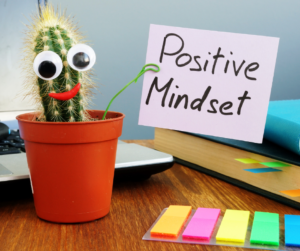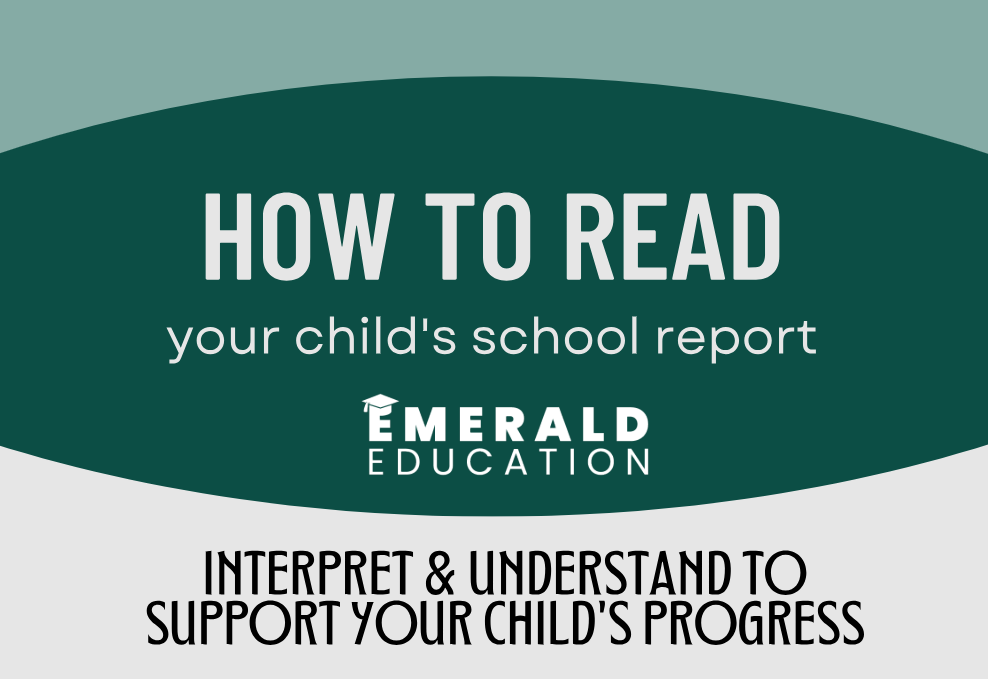How to Read Your Child’s School Report:
A Parent’s Guide to Understanding and Supporting Academic
Progress
It is that time of year when you will receive your child’s end-of-year report. But do you really know how to read your child’s school report? School reports are an important insight into your child’s academic progress and achievements. However, It is often difficult as a parent to know exactly what the teacher is trying to tell you about a year’s worth of work in just a few columns of ticks and some paragraphs. Therefore, it is important to interpret and understand what is written about your child so that you can support them on their educational journey.
Reviewing the Report
When you first receive it, take time to carefully read and review the entire report. Make sure you pay attention to both your child’s strengths and the areas that they perhaps need to work on. Those areas for improvement may be something that you can talk over with your child to help them to gain a better understanding.
Look at the grading system the school uses for reporting. Make sure you understand what any numbers or letters represent, and where any columns are checked. Pay particular attention to any comments that suggest how you can help your child with any specific areas of focus mentioned in the report.
Celebrate Achievements
It is important that you make a point of acknowledging and celebrating your child’s accomplishments, regardless of the overall grade. Children often feel anxious about what teachers have written and are also fully aware of their strengths and weaknesses. So don’t forget to show your child that you recognise their efforts. Praise any progress that they have made in particular areas, especially if these have been highlighted by the teacher. A smile and a little praise and encouragement can go a long way. This will boost your child’s confidence and encourage them to stay motivated and keep making an effort at school.
Identifying Areas for Improvement
What happens if there are areas highlighted in the report that suggest your child may need additional help or support? Pay attention to the grading system. Often this will allow you to see if your child is performing at the expected level for their age. Where comments or checked boxes show under-performance or a lack of understanding, it is important to identify whether there are patterns or feedback in specific subjects that suggest your child might benefit from additional support.
Communicating with Teachers
It is important to build a good relationship with your child’s school. After all, you all have the same goal – to do what is best for your child. It is, therefore important to develop open and proactive communication with your child’s teachers. This means that if you have any concerns of questions, you should reach out to teachers for clarification, additional insights, or recommendations to support your child’s progress.
Setting Realistic Goals

So, what next? When you have fully read and understood the report, chat with your child and allow them to read it, too. Ask for their opinions. What do they think are their strengths and areas for improvement? Do they agree with the teacher’s comments or grades? What specific things did they struggle with in any areas highlighted as a concern? Together, set realistic academic goals with your child, based on the report’s feedback. This will not only work toward addressing the areas for improvement but will also give your child ownership of their learning and help to motivate them. When they are involved in setting goals, they are more likely to work towards achieving them.
Creating an Action Plan
You have a list of goals you and your child have set. Great! The next job is to work towards achieving them. Create a plan to address areas of improvement, focusing on specific strategies, resources, or additional support. This could mean buying maths workbooks, enrolling on a course or hiring a tutor. You might find that allocating dedicated study time at home works well for your child. However, if you are like most families (mine included), children will often work better for someone OTHER THAN their parent! I have hired tutors for all three of my children, even though I could do some of that work myself. Other areas are outside my zone of genius! For example, I have hired tutors for Irish, Biology and Physics, none of which I personally studied at school. Search in your locality or online for the best fit for support for your child.
Supporting a Positive Mindset

In order to achieve positive results, you have to have faith in yourself, and your child is no different. You need to belief to achieve. Fostering a positive and growth-oriented mindset in both yourself as a parent and in your child will make a tremendous difference to the pace and success of your action plan.
No matter how positive you and your child are, there will be times when mistakes are made. Be there for your child by providing ongoing support, encouragement, and reassurance, emphasising that setbacks and mistakes are part of the learning process. You need to fail in order to learn and remember, so mistakes are actually good to make – it reinforces learning!
Monitoring Progress
Even though your newly set goals and action plan may have sprung from the information from the school report, don’t forget to regularly monitor your child’s progress throughout the year, not just at the end. It is easier to tackle problems as they arise each term rather than waiting until the end of the year, If you and your child work on small areas for improvement each term, they will be able to build on that and develop deeper learning, ultimately making greater gains. So how can you track progress? There are many ways, such as setting regular check-ins at school and at home, maintaining a portfolio of achievements, or using online learning platforms.
So, celebrating good progress and targeting areas for improvement is the key to success. Receiving an end-of-year report is an opportunity for growth and collaboration. Work together with your child and teachers to create a supportive environment that nurtures academic progress.
If you feel hiring a tutor or enrolling on a course may be beneficial for your child, contact me at elaine@emeraldeducationcentrebundoran, WhatsApp +353 83 8550210 or visit our website https://emeraldeducationcentrebundoran.com for further information.


